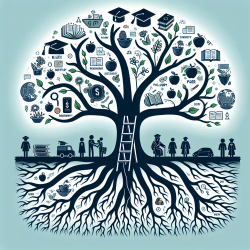Introduction
Wildfire smoke is a growing concern, particularly in rural areas where communities are heavily dependent on nature for their quality of life. While much research has focused on the physical health impacts of wildfire smoke, the mental health and wellbeing consequences have been less explored. A recent study titled What can we do when the smoke rolls in? An exploratory qualitative analysis of the impacts of rural wildfire smoke on mental health and wellbeing, and opportunities for adaptation sheds light on this crucial issue.
The Study: A Closer Look
Conducted in a rural community in Washington State, this study used qualitative methods to explore the mental health and wellbeing impacts of wildfire smoke. Focus groups with residents and interviews with local health and social service providers revealed a range of negative impacts, including heightened anxiety, depression, isolation, and a lack of motivation. The study also identified various adaptation solutions that could help mitigate these impacts.
Key Findings
- Mental Health Impacts: Anxiety, depression, and isolation were commonly reported, with some residents experiencing lingering psychological effects long after the smoke had cleared.
- Physical Health Impacts: Respiratory issues were a significant concern, exacerbating conditions like asthma and COPD.
- Economic and Social Impacts: While some economic activity increased due to firefighting efforts, many industries suffered, and community cohesion weakened.
Adaptation Solutions
The study suggests several community-led solutions to bolster resilience:
- Stress Reduction: Initiatives like meditation and relaxation lessons can help alleviate anxiety and depression.
- Community Clean Air Spaces: Developing spaces with excellent air quality can provide a refuge and promote community gatherings.
- Enhanced Communication: Increasing education and risk communication can help communities better prepare for and respond to wildfire smoke events.
Implications for Practitioners
For practitioners working in rural areas, this study underscores the importance of considering both the physical and mental health impacts of wildfire smoke. Implementing community-based solutions can significantly improve outcomes. Practitioners are encouraged to engage in further research and to advocate for resources that support both mental and physical health in these communities.
Conclusion
As wildfire smoke events become more frequent, understanding their full impact on mental health and wellbeing is crucial. Community-led solutions offer a promising path forward, but more research and resources are needed. To read the original research paper, please follow this link: What can we do when the smoke rolls in? An exploratory qualitative analysis of the impacts of rural wildfire smoke on mental health and wellbeing, and opportunities for adaptation.










